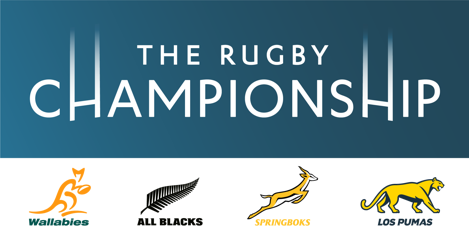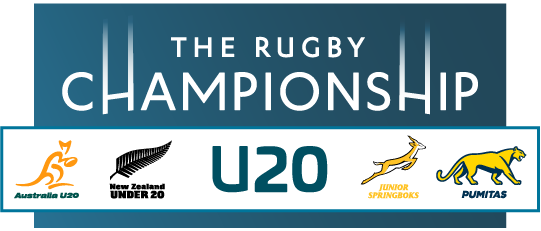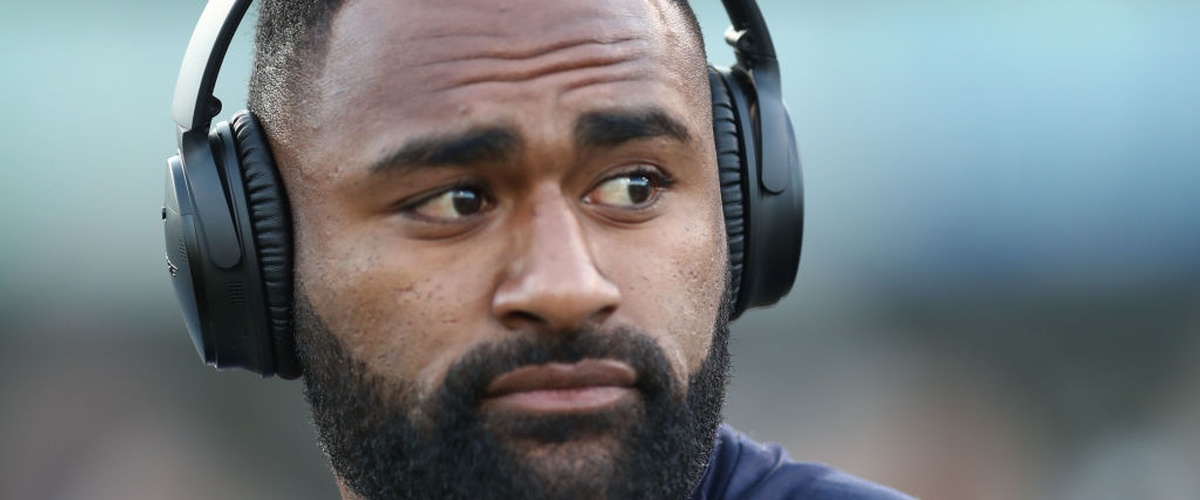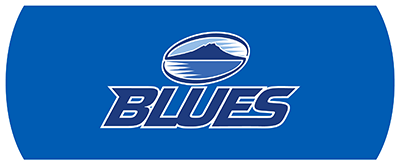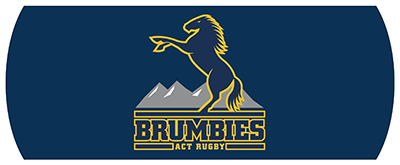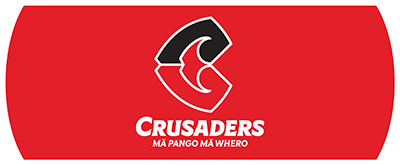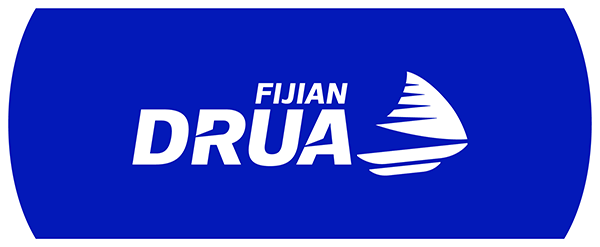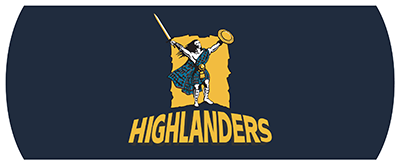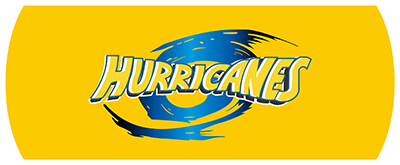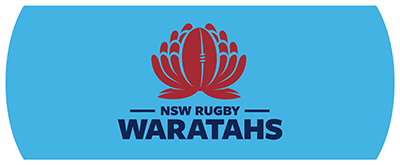The TOTW has representatives from nine of the teams following another action-packed round that saw the Crusaders and Hurricanes further strengthen their Finals ambitions.
As we approach Round 14 it is clear that the Crusaders and Hurricanes appear to be the teams to beat this year, while Finals positions in Australia and South Africa are still wide open. The battle for Conference top spots is as close as ever with all five South African teams still capable of finishing in first spot to guarantee a home quarter-final. In Australia, the Sunwolves have lost ground but the Brumbies, Rebels, Reds and Waratahs can all still finish first.
Round #13 saw several players lift their game as the Finals approach and selection for The Rugby Championship and Rugby World Cup looms. Hurricanes fly-half Beauden Barret was back to his imperial best as the only No.10 to pass double figures in tackles (13), while still contributing a try and the third-most running metres in his position (64). Brumbies centre Tevita Kuridrani produced his best game of the season with the most try assists (3), as well as making the second-most running metres by an outside centre (78) and beating three defenders from just six carries.
No fullback made more offloads (3), kicks in play (8) or beat more defenders (7) than Waratah fullback Kurtley Beale who didn't miss a single tackle either. Crusaders wing George Bridge made seven clean breaks - three more than any other player - and made the most carries of any back (17) and also assisted a try. Player of the Week is Lions wing Aphiwe Dyantyi who scored a try, was one of only three players in his position to run for over 100 metres (103), made two offloads, two clean breaks, beat five defenders and made five tackles on defence.
The Lions versus Waratahs match was a tough, no-holds-barred cliff-hanger in Johannesburg and the match statistics led to eight players from the match earning a spot in TOTW! Including Lions hooker Malcolm Marx who played 80 minutes as he made the joint-second most carries by any player (17), made the second-most running metres by a forward (84) and won the joint-most lineout throws (13). Waratahs captain Michael Hooper beat five defenders and made three clean breaks - no forward could better either tally - while he also gained the third most metres of any forward (69) and crossed for a try.
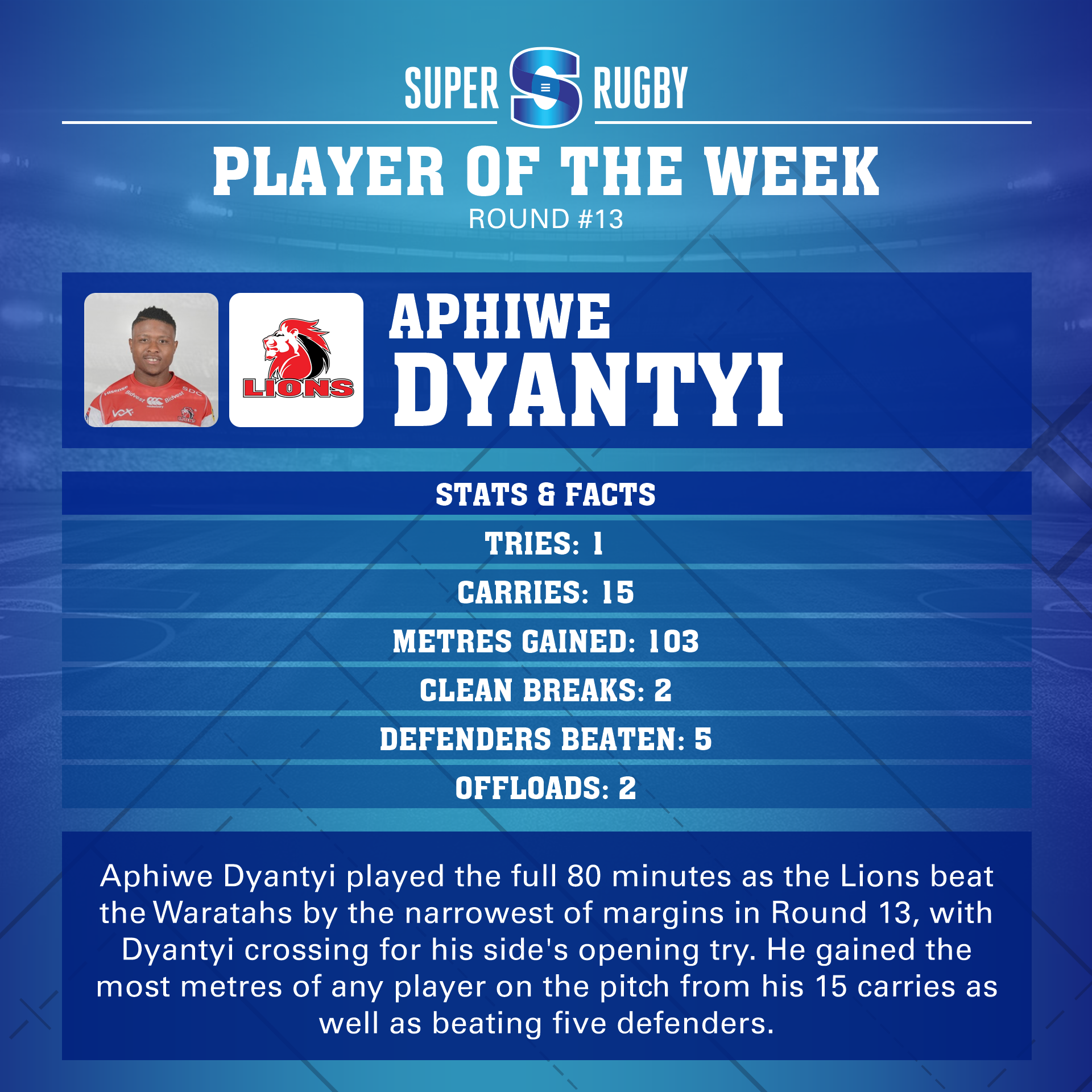
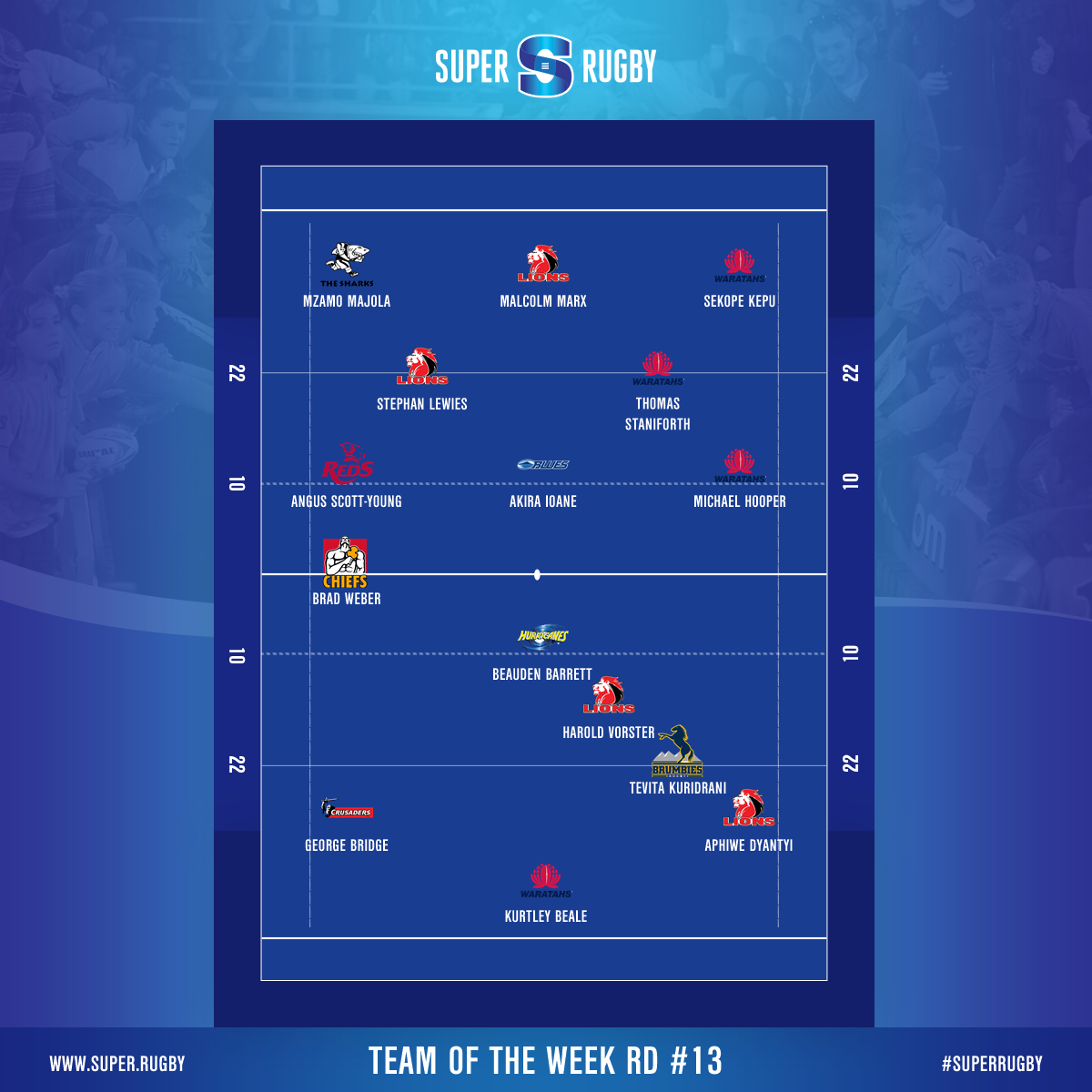
|
15 |
Kurtley Beale |
Waratahs |
No fullback made more offloads (3), kicks in play (8) or beat more defenders (7) than Kurtley Beale, who didn't miss a single tackle either. |
|
14 |
George Bridge |
Crusaders |
Made seven clean breaks - three more than any other player in Round 13 - and made the most carries of any back (17), while only two players beat more defenders than Bridge (7) who also assisted a try. |
|
13 |
Tevita Kuridrani |
Brumbies |
Produced the most try assists in Round 13 (3), as well as making the second-most running metres by an outside centre (78) and beating three defenders from just six carries. |
|
12 |
Harold Vorster |
Lions |
Beat the equal-most defenders of any player (8) from his 12 carries, made the most tackles by a No.12 (9), produced a try assist and three clean breaks. |
|
11 |
Aphiwe Dyantyi |
Lions |
Scored a try, one of only three players in his position to run for over 100 metres (103), made two offloads, two clean breaks, beat five defenders and made five tackles in defence. |
|
10 |
Beauden Barrett |
Hurricanes |
The only No.10 to pass double figures in tackles (13), while still contributing a try and the third-most running metres in his position (64), in defence only one player won more turnovers than Barrett in Round 13 (3) |
|
9 |
Brad Weber |
Chiefs |
One of only three in his position to play the full 80 minutes as he scored two tries, made the most tackles by a No. 9 (12) and produced two clean breaks. |
|
1 |
Mzamo Majola |
Sharks |
Made the equal-most carries in his position (6) and seven tackles while being the only one to produce multiple clean breaks (2). |
|
2 |
Malcolm Marx |
Lions |
Only one other hooker played 80 minutes as he made the joint-second most carries by any player (17), made the second-most running metres by a forward (84) and won the joint-most lineout throws (13). |
|
3 |
Sekope Kepu |
Waratahs |
Made the most running metres of any prop (40) as well as 14 tackles, no front row made more (14). |
|
4 |
Stephan Lewies |
Lions |
Only one other player in his position made multiple offloads (2), as he also scored a try, made a clean break, won four lineouts and a turnover. |
|
5 |
Thomas Staniforth |
Waratahs |
Made the joint-most tackles in his position (16), and the third most overall, while not missing any, scoring a try and winning a turnover. |
|
6 |
Angus Scott-Young |
Reds |
Made 17/17 tackles, the highest in his position and second-most among all players from the weekend's action, while he also won two lineouts. |
|
7 |
Michael Hooper |
Waratahs |
Beat five defenders and made three clean breaks in Round 13 - no forward could better either tally - while he also gained the third most metres of any forward (69) and crossed for a try. |
|
8 |
Akira Ioane |
Blues |
His 23 carries were the most of any player from the weekend, 10 more than the next best forward (13), while he made the most running metres by any forward (90). |
Opta Index: How does it work
The Opta Index allows genuine opportunities to compare and contrast both player and team strengths and weaknesses across Super Rugby, providing real insights pre-game as follows:
After every match Opta completes a video analysis of every touch of the ball. Each action in the match is awarded a points value depending on the relative importance of the action. So for example, a try scores more points than a tackle, but a player loses points for a missed tackle.
The points are then weighted against the score at the time when the action took place (higher points if the score is closer), the time in the match (higher points at the start of the match) and the position on the pitch where it took place (higher points for actions closer to the goal line).
The player is then given a score for the match by adding up all his actions while he was on the field. The total match score is then weighted to take account of the strength of the opposition so that performances across many matches can be judged fairly.

